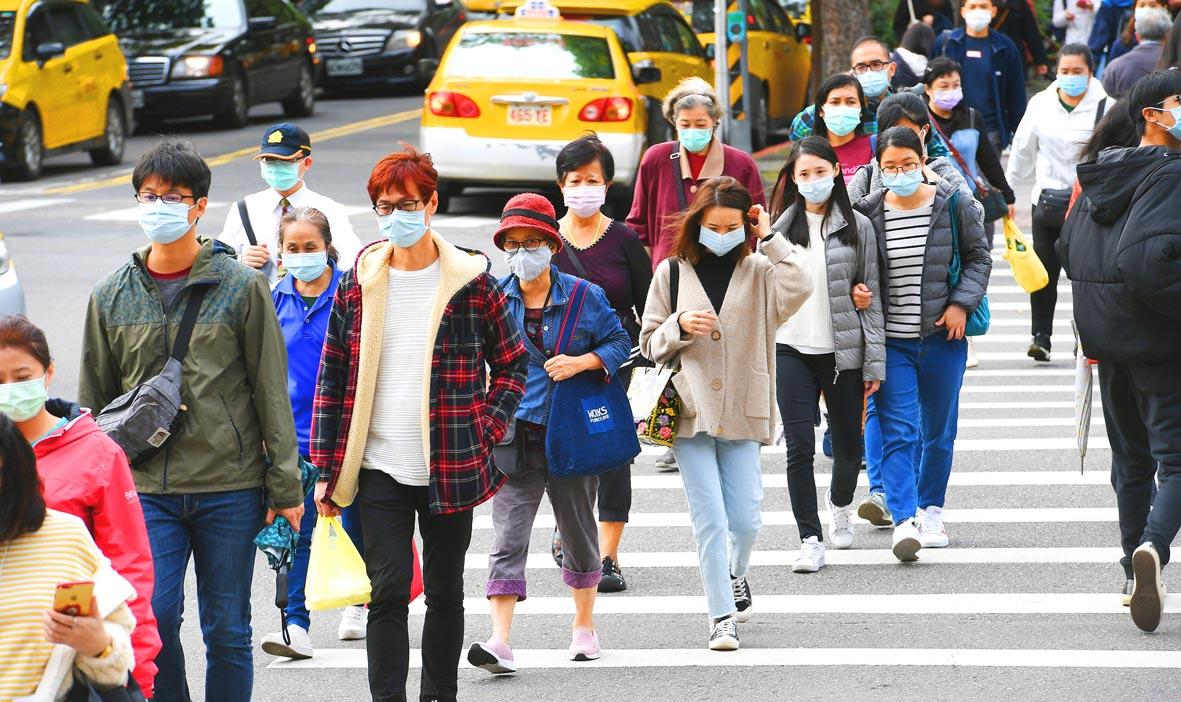Treating migrant workers who have tested positive for COVID-19 also protects Taiwanese from infection, the Central Epidemic Command Center (CECC) said on Sunday.
Centers for Disease Control (CDC) Deputy Director-General Chuang Jen-hsiang (莊人祥), who is the CECC’s spokesman, made the remark when asked why the government is spending an estimated more than NT$86 million (US$3.01 million) on medical treatment for 108 Indonesian migrant workers with COVID-19.
When he was asked whether it is reasonable for the government to spend so much on their medical fees, Chuang said providing medical treatment for them is safeguarding the public’s health.

Photo: CNA
The CECC on Sunday reported 20 confirmed cases among Indonesian migrant workers, bringing the total number of people from the country who have tested positive for the disease to 133, surpassing the previous high of 116 imported cases from the US.
The average medical cost for treating each confirmed COVID-19 case is about NT$2.1 million, but the majority of the migrant workers, who are young and have had mild or no symptoms, were hospitalized for shorter periods of time than those with more severe cases of COVID-19, so the average medical cost has been about NT$800,000 per person, Chuang said.
As COVID-19 is a category 5 notifiable communicable disease, the cost of treating the disease can be paid out of a government budget allocated for COVID-19 prevention, Chuang said, adding that allowing them to enter the workforce after ensuring they have fully recovered from the disease can prevent others from becoming infected.
Migrant workers are important to the nation’s social welfare services and other industries, and they can continue to work after recovery, so there is nothing inappropriate about treating them, he said.
Democratic Progressive Party (DPP) Legislator Cheng Yun-peng (鄭運鵬) yesterday wrote on Facebook that given the seriousness of the disease, the law permits the government to order infected people to be isolated for treatment, and based on the principle of equal rights, it should be responsible for paying for mandatory treatment.
In related news, the Ministry of Health and Welfare has deemed a controversial mass COVID-19 antibody study in Changhua County to be a breach of the Human Subjects Research Act (人體研究法), Department of Medical Affairs Director-General Liu Yueh-ping (劉越萍) said yesterday.
The Changhua Public Health Bureau and National Taiwan University public health researchers conducted the study from June to August, Liu said.
The ministry could fine the Changhua Public Health Bureau up to NT$1 million, but the final amount would be announced in two weeks, she said.
The Ministry of Education would have to decide whether to fine the university’s College of Public Health, she added.

A preclearance service to facilitate entry for people traveling to select airports in Japan would be available from Thursday next week to Feb. 25 at Taiwan Taoyuan International Airport, Taoyuan International Airport Corp (TIAC) said on Tuesday. The service was first made available to Taiwanese travelers throughout the winter vacation of 2024 and during the Lunar New Year holiday. In addition to flights to the Japanese cities of Hakodate, Asahikawa, Akita, Sendai, Niigata, Okayama, Takamatsu, Kumamoto and Kagoshima, the service would be available to travelers to Kobe and Oita. The service can be accessed by passengers of 15 flight routes operated by

GIVE AND TAKE: Blood demand continues to rise each year, while fewer young donors are available due to the nation’s falling birthrate, a doctor said Blood donors can redeem points earned from donations to obtain limited edition Formosan black bear travel mugs, the Kaohsiung Blood Center said yesterday, as it announced a goal of stocking 20,000 units of blood prior to the Lunar New Year. The last month of the lunar year is National Blood Donation Month, when local centers seek to stockpile blood for use during the Lunar New Year holiday. The blood demand in southern Taiwan — including Tainan and Kaohsiung, as well as Chiayi, Pingtung, Penghu and Taitung counties — is about 2,000 units per day, the center said. The donation campaign aims to boost

ENHANCING EFFICIENCY: The apron can accommodate 16 airplanes overnight at Taoyuan airport while work on the third runway continues, the transport minister said A new temporary overnight parking apron at Taiwan Taoyuan International Airport is to start operating on Friday next week to boost operational efficiency while the third runway is being constructed, the Ministry of Transportation and Communications said yesterday. The apron — one of the crucial projects in the construction of the third runway — can accommodate 16 aircraft overnight at the nation’s largest international airport, Minister of Transportation and Communications Chen Shih-kai (陳世凱) told reporters while inspecting the new facility yesterday morning. Aside from providing the airport operator with greater flexibility in aircraft parking during the third runway construction,

American climber Alex Honnold is to attempt a free climb of Taipei 101 today at 9am, with traffic closures around the skyscraper. To accommodate the climb attempt and filming, the Taipei Department of Transportation said traffic controls would be enforced around the Taipei 101 area. If weather conditions delay the climb, the restrictions would be pushed back to tomorrow. Traffic controls would be in place today from 7am to 11am around the Taipei 101 area, the department said. Songzhi Road would be fully closed in both directions between Songlian Road and Xinyi Road Sec 5, it said, adding that bidirectional traffic controls would